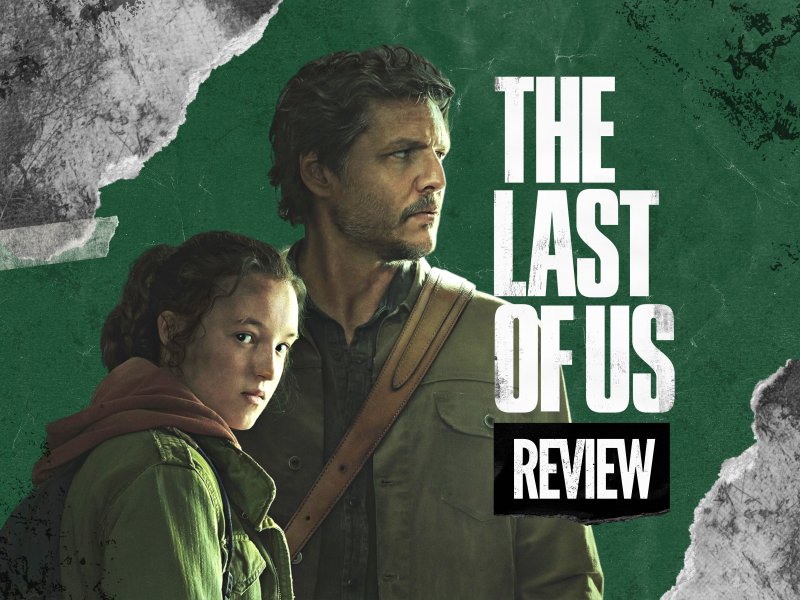This review contains spoilers for season one of the show and the first game.
When the video game company Naughty Dog introduced the world to “The Last of Us” in 2013, its twist on a zombie apocalypse was met with love from critics and fans alike. A decade later, HBO’s television series adaptation of the famous game has received positive Internet buzz, and some critics proclaimed it the first great live-action film or TV adaptation of a video game.
Indeed, not only is this show an entertaining and carefully crafted post-apocalyptic story, but it holds a deeply moving emotional weight. “The Last of Us” is special in this way — many of its live-action adaption predecessors failed to create meaningful stories, making them feel unnecessary in the first place.
To adapt “The Last of Us” to television, HBO tapped Naughty Dog co-president Neil Druckmann and the praised “Chernobyl” screenwriter Craig Mazin as showrunners and writers.
In a deep dive with The New Yorker, Druckmann said such adaptations have improved over time because many people now working in the entertainment industry grew up playing video games. He also said the greatest challenge when changing from the video game medium to television was that the player is no longer the driving force of the story.
The cold openings of the first two episodes were powerful in this way, not only because they introduce the fungal disease that dooms humanity, but also because they set a bleak tone for the unfolding narrative.
The episodes also give a more nuanced picture than the game. The opening episodes reveal the biological and societal effects of the disease — shockingly real to post-pandemic audiences in 2023, yet merely theoretical in 2013. Druckmann and Mazin used these opening episodes to go beyond what was accessible in the first-person structure of a video game.
To accommodate the structural difference between television and a video game, there were changes in the original video game story, particularly with respect to the characters of Bill and Frank. Instead of only encountering Frank as a corpse, as in the game, the television audience is able to experience the pair’s love story — something only hinted at in the 2013 game. It’s another interesting choice to have Bill and Frank die together as a couple, rather than Bill surviving Frank.
The third episode reflects this major change from the game — Frank and Bill live out their lives happily together as a couple, as opposed to the game narrative that had them as a cautionary tale to Joel and Ellie. This television narrative asserts the theme of how to keep surviving and finding light in the darkness. It also is a really effective change for the story overall since it highlights what Joel wants thematically: someone to draw purpose from.
After the first three episodes, though, the series begins to show slippage in its pacing. The show sprints through all the major plot points rather than experiencing the long trek Ellie and Joel take in the initial 2013 game.
The pacing issue is most pronounced in the season’s final episode, which is one of the shorter episodes of the season even though it features one of the most important events in the game — Joel massacring the Fireflies base to save Ellie from being killed in order to make a vaccine. In the original, Joel’s choice sends echoes of violence that go on to haunt him and Ellie into the second game. By rushing Joel’s choice, the final episode becomes more akin to a montage and lacks the early episodes’ emotional draw.
Despite this criticism of pacing and character arc choices, though, the series found great emotional beats in most places, such as Ellie’s confrontation, when Joel is ready to leave Ellie because he feels he can no longer protect her.
Actors Bella Ramsey (who plays Ellie) and Pedro Pascal (Joel) really make the series work. Although there were changes to the original game characters, it is their human chemistry that overcomes deviation from the video game character arcs. Even though the series has a low episode count of nine, there is no denying the way their performances cement their bond.
Pascal’s Joel is more aged and vulnerable compared to his video game counterpart, who seems physically invincible. While initially strange to see, it is the more realistic choice for a 56-year-old who has undergone trauma. Ramsey’s Ellie is far more complicated and dark than the loveable sidekick role she plays in the game. It’s remarkable how Druckmann and Mazin were able to explore Ellie more as a character to set up her dark and violent character arc that takes place after the events of the first game.
“The Last of Us” is, despite any criticism, a must-watch in 2023. Its success highlights why so many previous video game adaptations failed — studio executive producers were merely utilizing familiar intellectual property and less interested in creating a meaningful adaptation of the video game source material. This show, on the other hand, succeeded thanks to its love and care for many aspects of the original video game story.
Editor’s Note: This article is a review and includes subjective thoughts, opinions and critiques.
